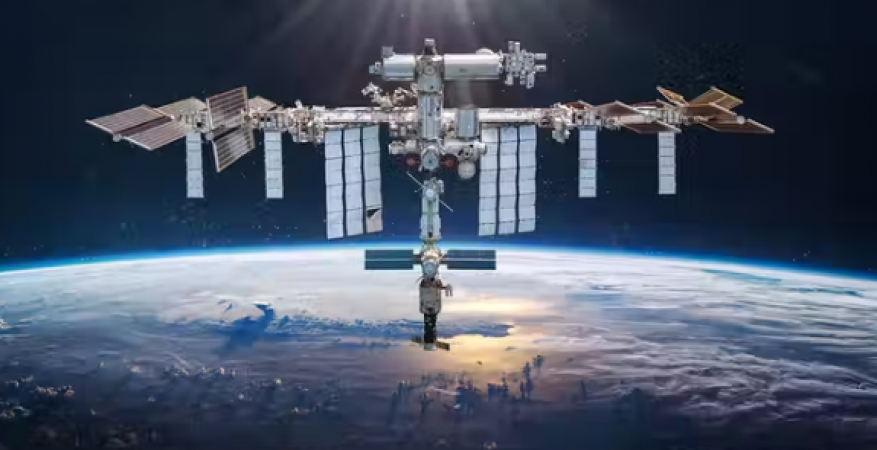
USA: In recent times, the International Space Station has been buzzing with American astronauts and Russian cosmonauts. But, when the top Russian space official announces his country's withdrawal from the program, the scene may already be from a bygone era of cooperation.
Tensions over the Ukraine conflict have put an end to the orbiting symbol of US-Russian diplomacy, prompting Moscow to threaten to withdraw its involvement earlier this year.
Yuri Borisov, who took over Roscosmos earlier this month, told President Vladimir Putin in a televised meeting on Tuesday that the decision had been made to leave after 2024. Borisov was appointed by Putin earlier this month.
"Of course, we will fulfill all our obligations to our partners," Borisov said, "but the decision has been made to withdraw from this station after 2024."
This announcement took NASA by surprise, despite the fact that Borisov's predecessor, Dmitry Rogozin, had repeatedly questioned Russia's continued cooperation with the Americans.
NASA has not been made aware of any decisions from the partners, said NASA chief Bill Nelson, emphasizing that the US space agency is "committed to the safe operation of the International Space Station by 2030."
The announcement, according to US State Department spokesman Ned Price, is "an unfortunate development" given the "valuable professional support of our space agencies over the years".
According to National Security Council spokesman John Kirby, the United States is "exploring options" to deal with the Russian withdrawal.
Russian officials have long expressed a desire to launch their own space station, claiming that the aging ISS's wear and tear is threatening the safety and making it difficult to extend its lifespan.
Borisov said work on the Russian space station should begin until Russia leaves the ISS.
Russia's decision could also be affected by cost. After Elon Musk's SpaceX company is now taking NASA astronauts to and from the space station, Russia's space agency has lost a significant source of revenue. NASA had been paying tens of millions of dollars per seat for a ride on a Russian Soyuz rocket for years.
Moscow's departure calls into question the future of the 24-year-old space station, with experts claiming it would be extremely difficult - even a "nightmare", by one estimate - to keep it operational without the Russians.
The Russian announcement will certainly fuel speculation that it is part of Moscow's ploy to evade Western sanctions on the Ukraine conflict. In response to Tuesday's announcement, former Canadian astronaut Chris Hadfield tweeted: "Remember that the best game in Russia is chess."
Russia, the United States, Europe, Japan and Canada share responsibility for the space station. Because of its military ties, the United States barred China from joining the ISS.
The first piece of outpost was launched into orbit in 1998, and has been continuously inhabited for nearly 22 years. It is used to conduct scientific research in zero gravity and to test technology for future Moon and Mars missions.
The more than US$100 billion complex is roughly the length of a football field and is divided into two sections, one run by Russia and the other by the US and other countries. It was not clear what the Russian side of the complex would have to do to keep the space station running safely after its departure to Moscow.
He added that if the station's Russian components become detached or inactive, the most pressing issue will be how to keep the complex in regular orbit.
Russian spacecraft carrying cargo and crew members are used to help align the station and elevate its orbit. So far, Russia has made no apparent effort to develop its own space station, and the task appears increasingly difficult in light of the Ukraine crisis and Western sanctions that have restricted Russia's access to Western technology. Have given.
The Soviets - and later the Russians - had several space stations of their own, including Mir, long before the ISS. Skylab was also built in the United States.
Taliban gets a vow of economic aid from Russia, Uzbekistan
Zelensky nominates lawmaker from own-party as prosecutor general
Prosecutors in Ukraine are pushing to prosecute alleged war crimes as fighting rage